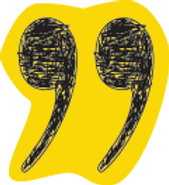Writing Lab #10: Tricky Punctuation
Class Syllabus – Grades 3-5
Objective: Students will be able to use the correct punctuation when using quotation marks and addressing others.
Essential Questions:
- When do we use quotation marks?
- How do I punctuate quotations?
- How do I punctuate a sentence in which I address someone?
- Why is it important to use the correct punctuation when addressing someone?
Enduring Understandings:
- We use quotation marks to show direct quotes, for dialogue, when writing certain titles, or to otherwise set aside words in text.
- Punctuate quotations by placing the punctuation mark inside the quotation marks. The exception is when the punctuation mark is an exclamation point or question mark not included in the quote itself. Then, the punctuation goes outside the quotation mark(s).
- We use commas to set off nouns of direct address.
- Using the correct punctuation when addressing someone shows that the direct address is not the subject or object of the sentence, but an address.
Standards:
Grade 3: L.3.3. – Use knowledge of language and its conventions when writing, speaking, reading, or listening. A. Choose words and phrases for effect. B. Recognize and observe differences between the conventions of spoken and written standard English.
Grade 4: L.4.3. Use knowledge of language and its conventions when writing, speaking, reading, or listening. A. Choose words and phrases to convey ideas precisely. B. Choose punctuation for effect. C. Differentiate between contexts that call for formal English (e.g., presenting ideas) and situations where informal discourse is appropriate (e.g., small-group discussion).
Grade 5: L.5.3. Use knowledge of language and its conventions when writing, speaking, reading, or listening. A. Expand, combine, and reduce sentences for meaning, reader/listener interest, and style. B. Compare and contrast the varieties of English (e.g., dialects, registers) used in stories, dramas, or poems
Materials:
- Please read and print the worksheet attached.
- Pen or pencil











